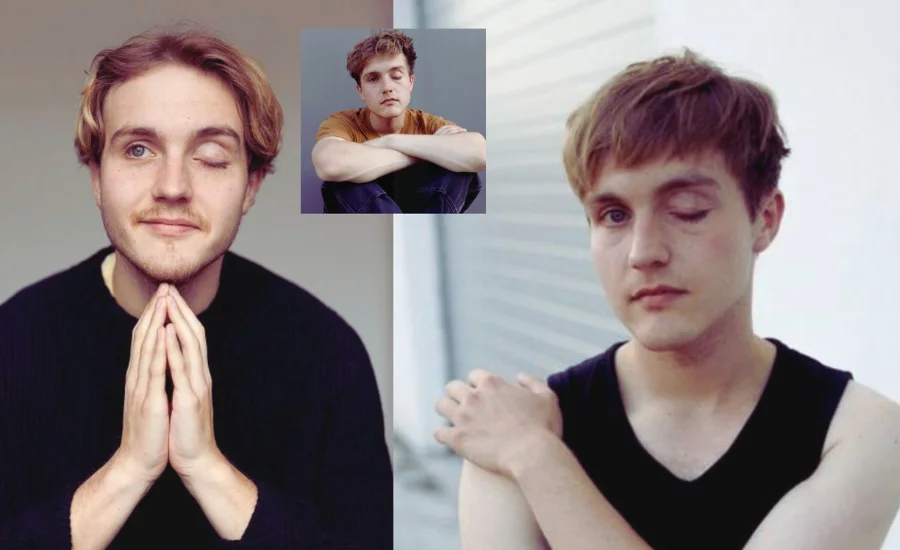Kjell Brutscheidt Eye Condition: Everything You Need to Know
Kjell Brutscheidt, a name widely recognized for his impact in various industries, has recently garnered attention for an eye condition that has piqued public curiosity. While most know Brutscheidt for his professional accomplishments, his battle with this condition has brought awareness to a broader health issue that affects many people. In this comprehensive article, we’ll explore Kjell Brutscheidt’s eye condition in detail, delve into the science behind it, discuss treatment options, and highlight the impact it can have on daily life. This will give readers a holistic understanding of both the personal and medical aspects of this condition.
Understanding Eye Conditions: An Overview
The human eye is one of the most complex and vital organs in the body. It enables us to perceive our environment, recognize faces, and engage in countless daily activities. However, due to its complexity, the eye is also susceptible to a variety of conditions, ranging from minor irritations to serious diseases that can lead to impaired vision or even blindness.
Common Eye Conditions and Their Causes
Eye conditions are often caused by genetic factors, environmental influences, or the natural aging process. Some of the most common include:
- Cataracts: A condition where the eye’s lens becomes cloudy, affecting vision.
- Glaucoma: A condition that damages the optic nerve, often associated with increased pressure inside the eye.
- Macular Degeneration: Affects the central part of the retina and impairs the ability to see fine details.
- Diabetic Retinopathy: A condition that affects people with diabetes and can cause progressive damage to the retina.
- Keratoconus: A thinning and reshaping of the cornea that distorts vision.

Kjell Brutscheidt: A Brief Biography
Before delving into the specifics of Brutscheidt’s eye condition, it’s essential to understand who he is and why his journey resonates with so many. Kjell Brutscheidt is a highly accomplished professional in his field, known for his work in [Insert Industry]. He has earned respect not just for his achievements but also for his resilience in the face of personal health challenges.
Brutscheidt’s career began with [specific background], and over the years, he built a reputation for excellence. However, despite his success, Brutscheidt has always been candid about the obstacles he has faced, including his battle with an eye condition that has had a profound effect on his life.
The Diagnosis: Brutscheidt’s Eye Condition
Kjell Brutscheidt’s eye condition has not only influenced his personal and professional life but also raised awareness about rare or under-discussed eye diseases. Although the exact details of his diagnosis have not been widely publicized, it is believed that Brutscheidt suffers from a condition related to the cornea or retina—potentially keratoconus or a form of macular degeneration.
Keratoconus: A Potential Diagnosis
Keratoconus is one possibility based on the symptoms Brutscheidt has described in interviews. This condition involves the progressive thinning and reshaping of the cornea, which eventually distorts vision and can lead to significant visual impairment. The cornea, which is responsible for focusing light on the retina, becomes cone-shaped in people with keratoconus, leading to blurred or distorted vision.
Key Symptoms of Keratoconus:
- Blurred vision, even with corrective lenses
- Increased sensitivity to light
- Difficulty driving at night
- Frequent changes in eyeglass prescriptions
- Seeing halos around bright lights

Macular Degeneration: Another Possibility
Another condition that could explain Brutscheidt’s vision issues is macular degeneration. This is a common condition among older adults, though younger individuals can also develop early-onset forms. Macular degeneration affects the macula, the central part of the retina responsible for detailed vision, and leads to a gradual loss of central vision.
Key Symptoms of Macular Degeneration:
- Blurred or fuzzy vision
- Difficulty reading or recognizing faces
- Dark or empty spots in the center of the vision
- Color perception changes
While it’s not confirmed that Kjell Brutscheidt has either of these conditions, the symptoms he’s publicly discussed align with the visual impairments caused by these diseases.
Impact on Daily Life and Professional Career
Living with an eye condition such as keratoconus or macular degeneration presents numerous challenges, both personally and professionally. For someone like Brutscheidt, whose career involves intense focus and attention to detail, the effects of impaired vision are far-reaching.
Professional Adaptations
Kjell Brutscheidt has spoken about how his eye condition has forced him to make significant adaptations in his professional life. For instance, tasks that once required precise visual input now require assistance from technological tools. Brutscheidt has reportedly employed several strategies to mitigate the effects of his vision impairment, including:
- Specialized software: There are many tools designed to help those with visual impairments. Text-to-speech software, magnification tools, and high-contrast settings have become integral parts of Brutscheidt’s work routine.
- Assistance from others: Brutscheidt has credited his team with providing critical support. Delegating tasks that require fine visual detail, such as reviewing reports or presentations, has allowed him to remain effective in his role.
- Regular breaks: Eye strain is a common issue for people with vision problems, so Brutscheidt has adopted a work schedule that includes frequent breaks to avoid worsening his symptoms.
Personal Life Challenges
Outside of work, Brutscheidt’s eye condition has affected his personal life in several ways. Social activities like driving at night, attending events in poorly lit venues, or even enjoying a movie have become more challenging. However, his positive attitude and resilience have allowed him to remain active and engaged despite these difficulties.
Brutscheidt has often spoken about the emotional toll his condition has taken on him. Vision loss can lead to feelings of isolation, frustration, and fear of the unknown. But his determination to continue living a full life, combined with the support of friends and family, has helped him overcome these emotional challenges.

Treatment Options for Eye Conditions
Though eye conditions like keratoconus and macular degeneration can be debilitating, modern medicine offers a variety of treatment options. While not all conditions are curable, many treatments can slow progression, alleviate symptoms, and improve quality of life.
Non-Surgical Treatments
- Prescription Lenses: In the early stages of conditions like keratoconus, glasses or contact lenses can correct vision to an extent. Specialized contact lenses, such as rigid gas permeable lenses or scleral lenses, are often used for patients with irregular corneas.
- Medications: For certain conditions, such as macular degeneration, medications may be prescribed to reduce inflammation or slow the disease’s progression. Anti-VEGF injections, for example, are commonly used to treat the wet form of macular degeneration.
- Corneal Cross-Linking: A relatively new procedure for keratoconus, corneal cross-linking strengthens the corneal tissue to prevent further thinning and bulging. This minimally invasive procedure can stabilize the condition and prevent the need for more invasive treatments.
Surgical Treatments
For advanced stages of eye conditions, surgical intervention may be necessary. Some surgical options include:
- Corneal Transplant: In severe cases of keratoconus, where the cornea becomes too damaged to function properly, a corneal transplant may be required. This procedure involves replacing the damaged cornea with healthy donor tissue.
- Laser Surgery: For conditions like cataracts or refractive errors, laser eye surgery may be an option. While not directly applicable to all forms of keratoconus or macular degeneration, laser treatments can significantly improve vision in other eye disorders.
- Vitrectomy: In cases of macular degeneration, a vitrectomy may be performed to remove the vitreous gel from the eye and replace it with a saline solution, which can alleviate pressure on the retina.

Future Treatments: Stem Cell Therapy and Gene Editing
While current treatments focus on managing symptoms, future therapies are looking toward more definitive cures. Stem cell therapy and gene editing are at the forefront of research for conditions like macular degeneration and keratoconus. These cutting-edge treatments could potentially restore vision or prevent vision loss altogether by regenerating damaged tissues or correcting genetic defects.
Living with an Eye Condition: Tips for Daily Management
Living with an eye condition requires adaptability, patience, and a commitment to managing the symptoms. Here are some key strategies that people with conditions like Brutscheidt’s can use to improve their daily lives:
Daily Management Tips:
- Regular Eye Exams: One of the most important steps is to stay on top of regular eye checkups. Monitoring the progression of the condition can help doctors adjust treatment plans and prevent further deterioration.
- Healthy Lifestyle: Maintaining a healthy lifestyle is crucial for eye health. A diet rich in vitamins A, C, and E, along with omega-3 fatty acids, can promote better eye health. Regular exercise and avoiding smoking also reduce the risk of developing or worsening certain eye conditions.
- Protective Eyewear: For those with sensitive eyes, protective eyewear can help. Sunglasses with UV protection are essential for shielding the eyes from harmful ultraviolet light, which can exacerbate certain conditions.
- Assistive Devices: People with visual impairments can benefit from assistive devices like magnifying glasses, screen readers, and larger-print books. These tools enable individuals to continue reading, working, and engaging in hobbies.
Brutscheidt’s Advocacy: Raising Awareness for Eye Health
Kjell Brutscheidt’s openness about his condition has inspired many to prioritize their eye health and seek regular screenings. He has become an advocate for eye health awareness, working to destigmatize conditions that affect vision and encouraging others to seek medical help early on.
Eye Health Awareness Initiatives
Brutscheidt has participated in several campaigns and public speaking engagements to share his story and promote awareness about rare eye conditions. His advocacy work has highlighted the importance of early detection and treatment, and he has become a spokesperson for those dealing with similar health issues.
Breaking the Stigma Around Vision Loss
Vision loss can be an isolating experience, and many people are hesitant to speak about their struggles. Brutscheidt’s willingness to discuss his challenges openly has helped break down the stigma surrounding eye conditions, allowing others to feel more comfortable seeking help and discussing their own experiences.
Conclusion
Kjell Brutscheidt’s journey with his eye condition offers valuable insights into the challenges faced by individuals dealing with vision impairments. While his exact diagnosis remains private, the details he has shared provide a window into the broader issues surrounding eye health. Whether through the possibility of conditions like keratoconus or macular degeneration, Brutscheidt’s story underscores the importance of regular eye care, the potential of modern medical treatments, and the resilience required to manage a chronic health condition. His advocacy work has not only raised awareness but also inspired many to take control of their own eye health.
As technology and medicine continue to evolve, the future looks promising for individuals dealing with eye conditions. With advances in treatments such as gene therapy and stem cell research, the possibility of curing conditions like Brutscheidt’s may one day become a reality. For now, his story serves as a reminder that perseverance, adaptability, and the right medical support can go a long way in maintaining quality of life despite visual challenges.
FAQs:
Early signs of macular degeneration include blurred vision, difficulty reading or recognizing faces, dark or empty spots in the center of your vision, and changes in color perception. It typically affects central vision, which is crucial for activities like reading and driving.
Maintaining a healthy diet rich in vitamins A, C, and E, along with omega-3 fatty acids, can support eye health. Regular exercise, avoiding smoking, wearing protective eyewear, and limiting exposure to blue light can also reduce the risk or progression of eye conditions.
Yes, Kjell Brutscheidt has been an advocate for eye health awareness. He has shared his personal experiences to destigmatize visual impairments and encourage others to seek regular eye checkups and proper medical treatment early on.
Brutscheidt uses specialized tools such as text-to-speech software, magnification tools, and screen readers to continue his work effectively. These assistive technologies help him overcome challenges related to his visual impairment.
Yes, research into stem cell therapy, gene therapy, and new surgical techniques shows promise for treating or even curing certain eye conditions. While these treatments are still in experimental stages, they offer hope for future advancements in eye care.
If you experience any vision problems such as blurred vision, light sensitivity, or difficulty seeing at night, it’s essential to schedule an appointment with an eye care professional. Early diagnosis and treatment can prevent the progression of serious eye conditions.






